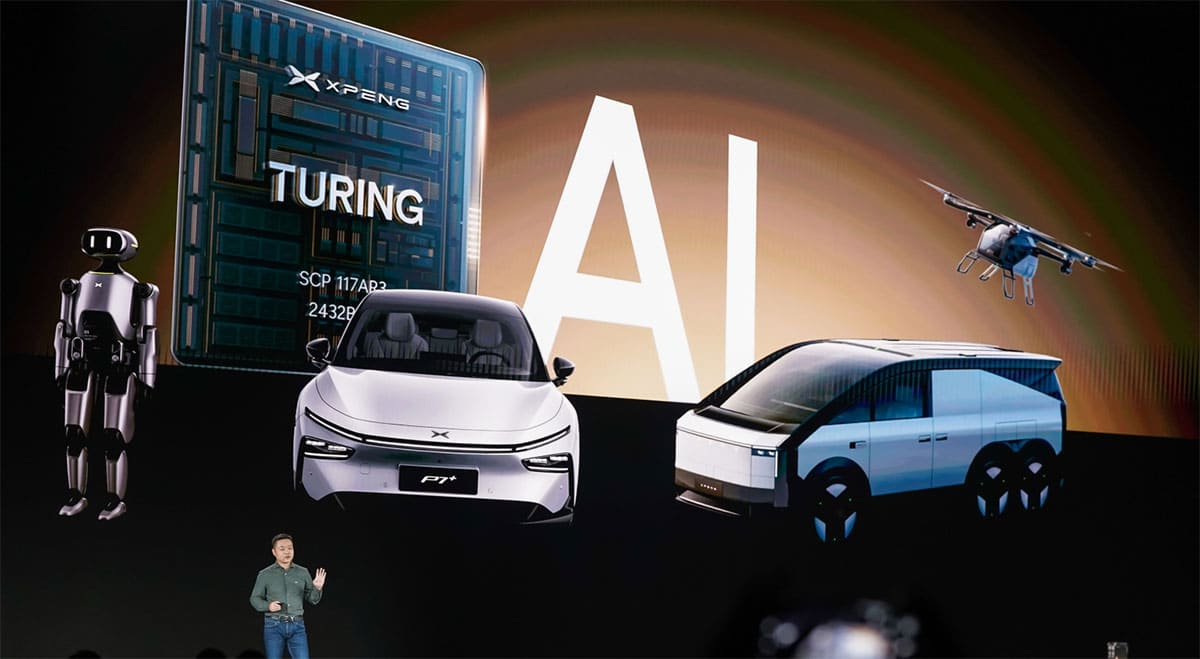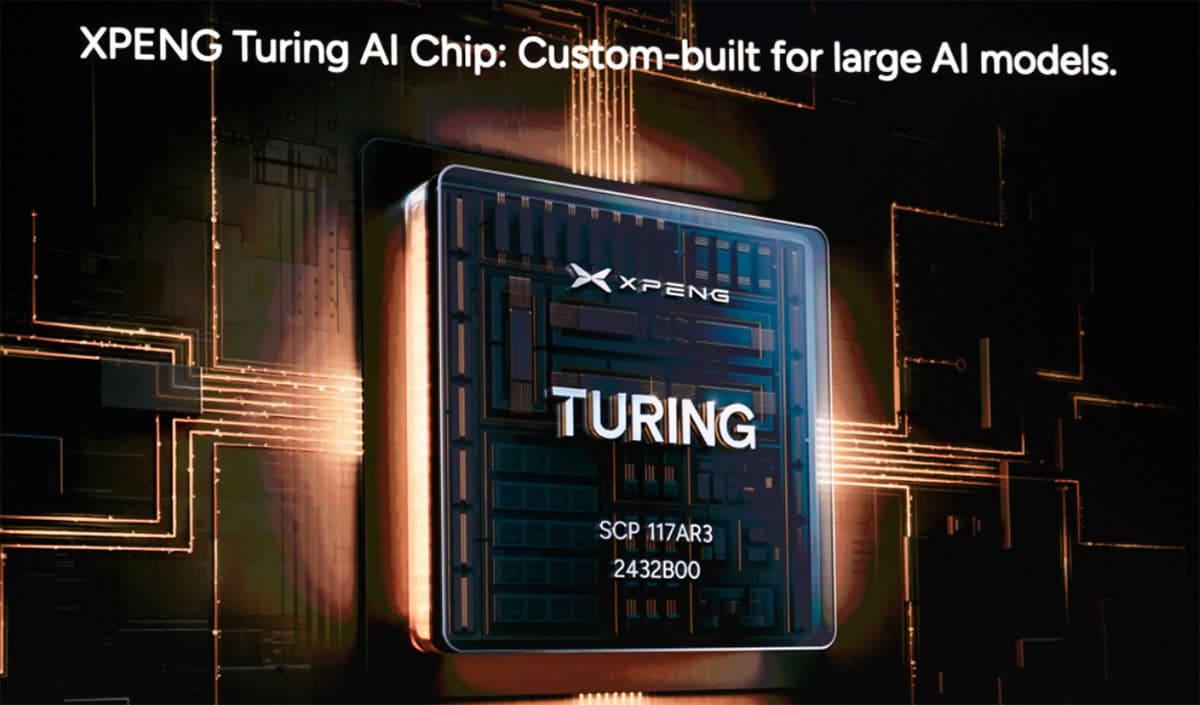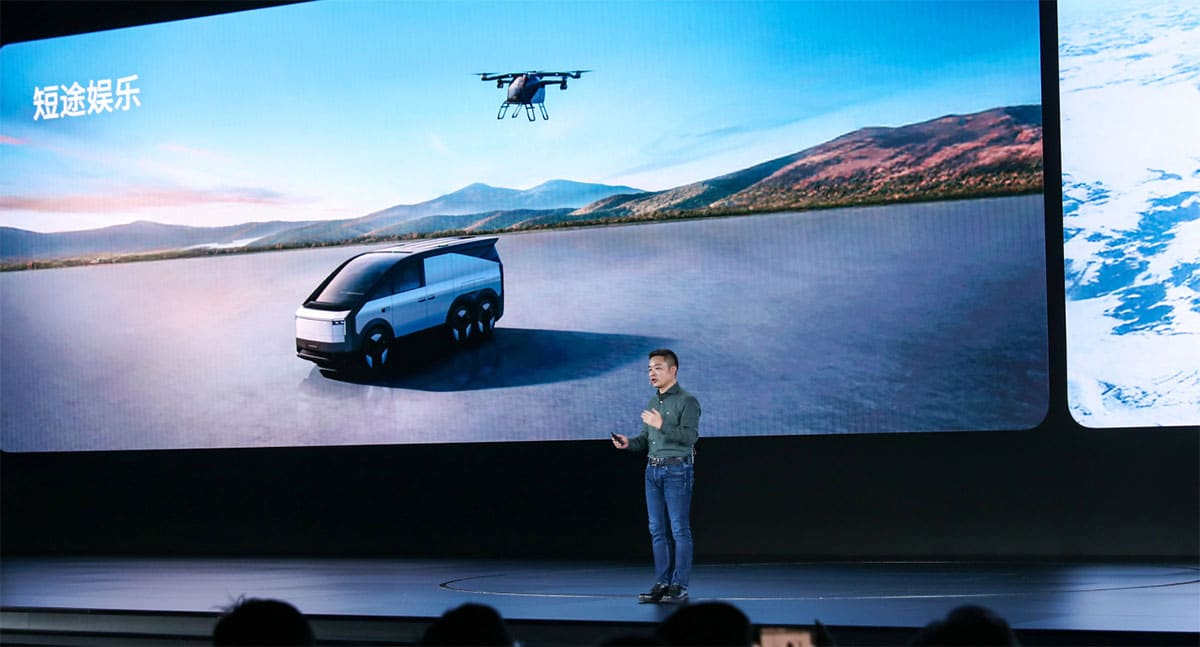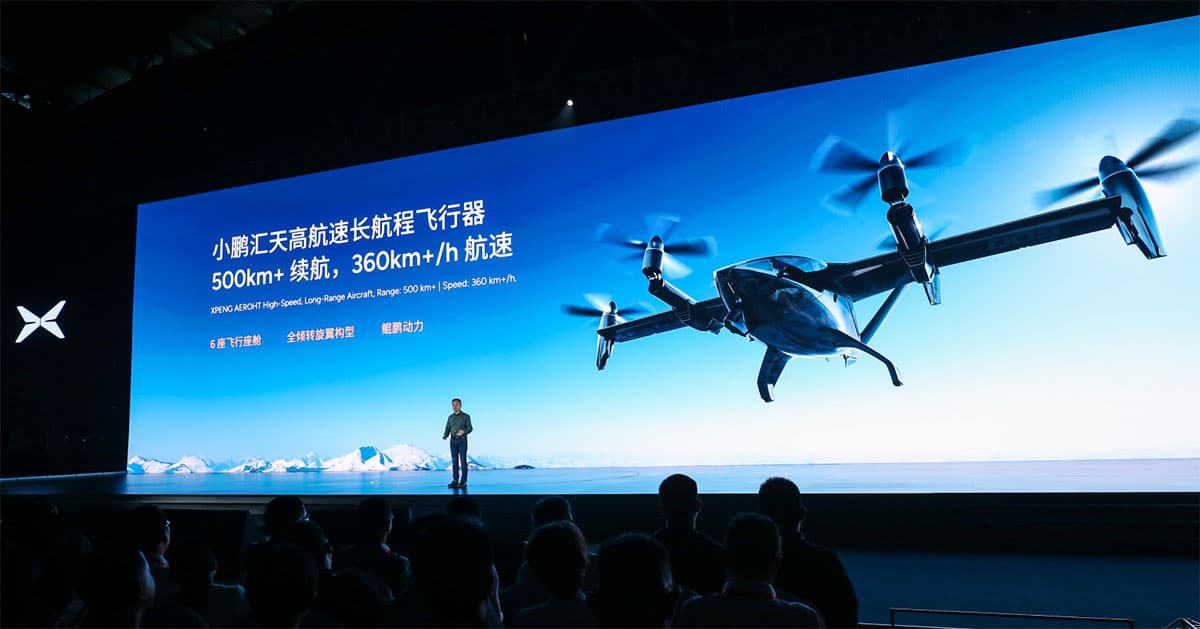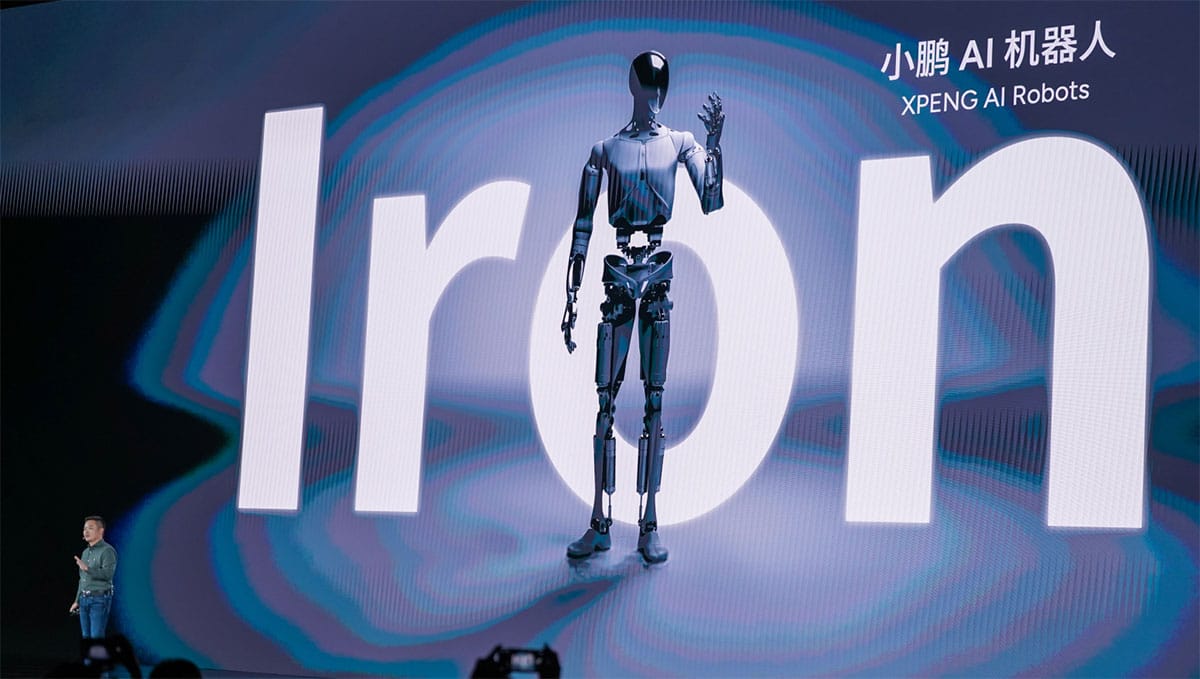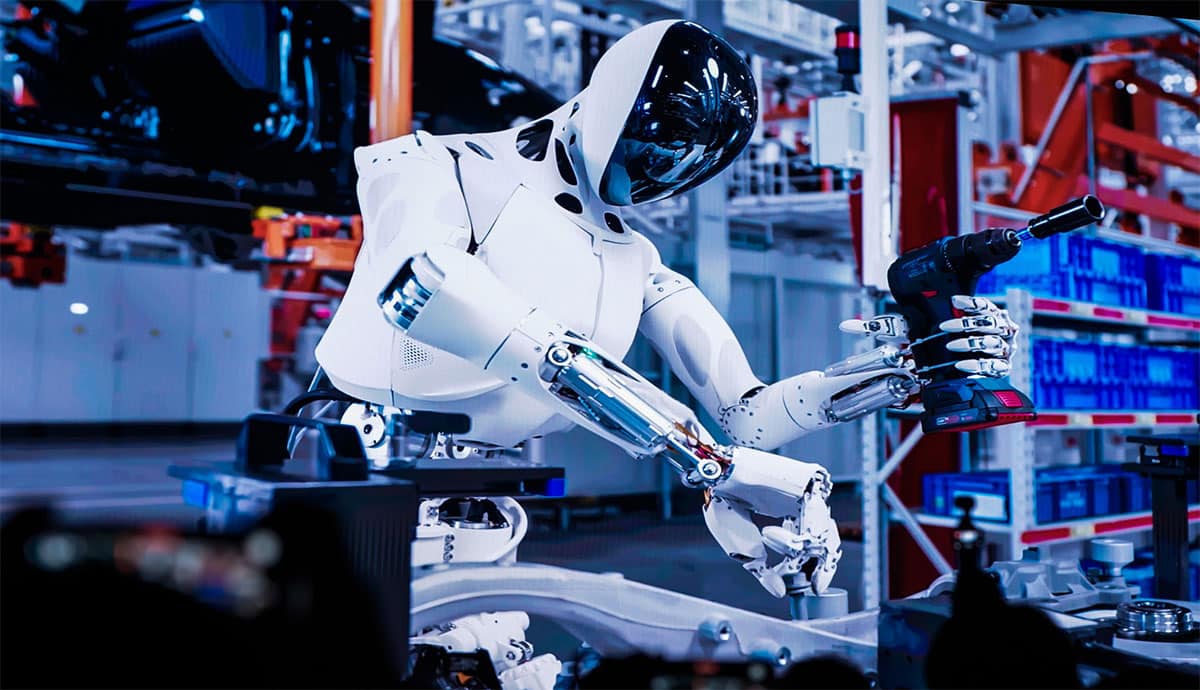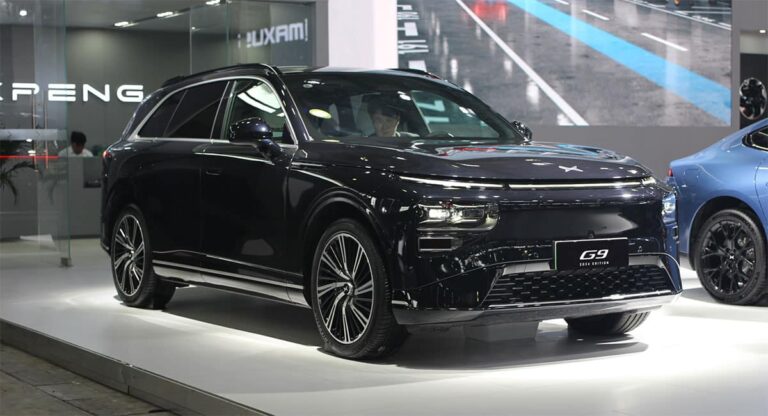Everything you need to know about Xpeng's 2024 AI Day event.
Xpeng (NYSE: XPEV) held its 2024 AI Day event -- an upgraded version of its previous 1024 Tech Day event -- today in Guangzhou, where it is headquartered, to share a slew of technology advancements.
During the 2-hour long event, Xpeng chairman and CEO He Xiaopeng unveiled an extended-range hybrid system, and progresses on autonomous driving chip, flying car, among others.
Kunpeng hybrid system
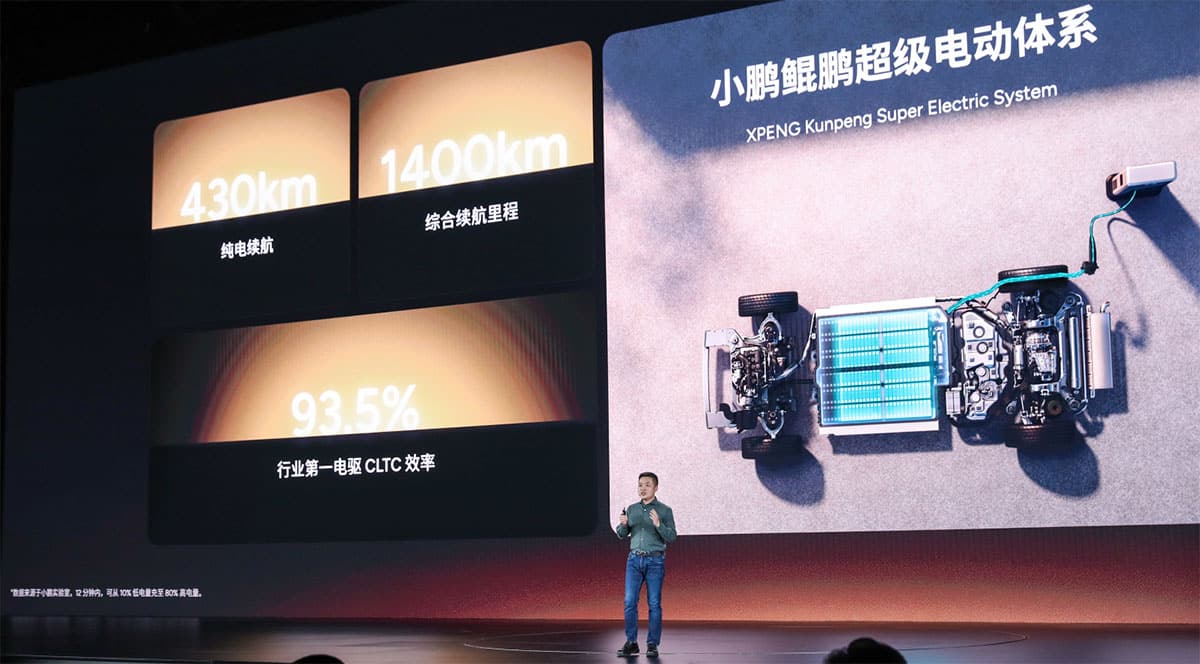
Xpeng officially unveiled its extended-range system, called the Kunpeng Super Electric System, making previous rumors come true.
Vehicles equipped with the Kunpeng system will have a combined range of up to 1,400 kilometers and a battery range of up to 430 kilometers.
This will be an extended-range system with the longest battery range in the industry, thus relieving drivers of range concerns, Xpeng said.
In response to global climate and infrastructure conditions, Xpeng, which has a world-leading pure electric power system, has introduced a new generation of extended-range system, it said.
The system uses a battery pack that supports 5 C fast charging, capable of charging from 10 percent to 80 percent in 12 minutes.
CATL launched the Freevoy Super Hybrid Battery late last month, which it said can provide a battery range of over 400 km for hybrid models and supports 4 C fast charging.
With the launch of Xpeng's Kunpeng system-equipped models next and the availability of models powered by CATL's Freevoy battery, the line between hybrid and battery electric vehicle (BEV) models is set to become more blurred.
Turing AI chip
The Xpeng Turing AI chip is the world's first chip that can be used in AI cars, AI robots, and flying cars, the company said today.
The chip is customized for large AI models with a 40-core processor that can support large models running with up to 30 billion parameters, it said.
The race for smart driving is unfolding in the cloud and is also placing higher demands on high computing power on the vehicle side, Xpeng said.
To match this demand, as well as to solve the problem of a large amount of general-purpose computing power being wasted on general-purpose chips, Xpeng has decided to develop its own chips, Mr. He said.
In October, the latest version of Xpeng's smart driving feature was validated on the Turing AI chip, with the company completing as many as 2,791 feature validations in just 40 days, he said.
Xpeng announced on August 27 at the launch of its new model, the Mona M03, that its first AI chip, Turing, saw a successful tape-out on August 23.
Tape-out is a technical term used in the field of integrated circuit design, referring to the process of transforming a circuit design into a chip that can be produced on an assembly line after the chip design is completed.
Canghai Platform
Xpeng today announced the Canghai Platform, which it says is an AI auto neural system designed for L4 autonomous driving scenarios.
The Canghai Platform has a 33x increase in communication bandwidth, a 12x increase in the speed at which the camera outputs images, and a 72 percent reduction in sentinel mode power consumption, the company said.
The Turing chip is the brain of AI cars and the Canghai Platform is its neural network, Xpeng said.
Xpeng will use multiple Turing chips in the Ultra series models and use the Canghai Platform to create a new form of robotaxi, the company said.
These robotaxis will have up to 3,000 TOPS of computing power with L4 smart driving capabilities, it said, adding that the company is also working on steer-by-wire technology to make steering wheels in the future optional rather than mandatory.
Flying cars
Xpeng's flying car subsidiary, Xpeng Aeroht, will give its modular flying car its world debut public flight at the China Airshow in November and will begin pre-sales in December.
Aeroht's flying car development path will include an eVTOL (Electric Vertical Takeoff and Landing) flying car and a modular flying car, the company said at its October 24, 2023 Tech Day event.
The modular flying car in its entirety consists of a flying car, as well as a parent vehicle that can recharge that flying car.
In September, Xpeng Aeroht's founder and president, Zhao Deli, said the modular flying car would be mass-produced and delivered in 2026, and that the price would be no more than RMB 2 million yuan ($279,200).
Mr. He said at today's event that Xpeng Aeroht also plans to launch an all-in-one flying car with six seats and hybrid power.
The all-in-one flying car will have a maximum air range of 500 kilometers and can achieve a speed of 360 km/h.
Humanoid robot Iron
Xpeng today unveiled Iron, a humanoid robot that stands 178 cm tall and weighs 70 kg, close to a real person.
Iron has over 60 joints and uses a number of technologies that are homologous to AI cars, simulating humans standing, lying down, and sitting.
The humanoid robot's brain is powered by the Turing AI chip and has the ability to think and even reason on its own.
The end-to-end large model gives it the ability to walk, and fingers that can perform tasks including grasping, holding, and placing items, according to Xpeng.
Iron is currently working its way into Xpeng's factories. It will also enter sales stores, offices, homes and other scenarios in the future, the company said.
Xpeng also mentioned today that it has entered 30 countries and regions around the world, establishing 145 overseas after-sales service outlets.
By next year, Xpeng's international presence will expand to 60 countries and regions, it said.
The company will officially launch the P7+ electric sedan tomorrow, which will come standard with the Turing AI intelligent driving system, which doesn't differentiate between Max and Pro versions like other models.
($1 = RMB 7.1634)

